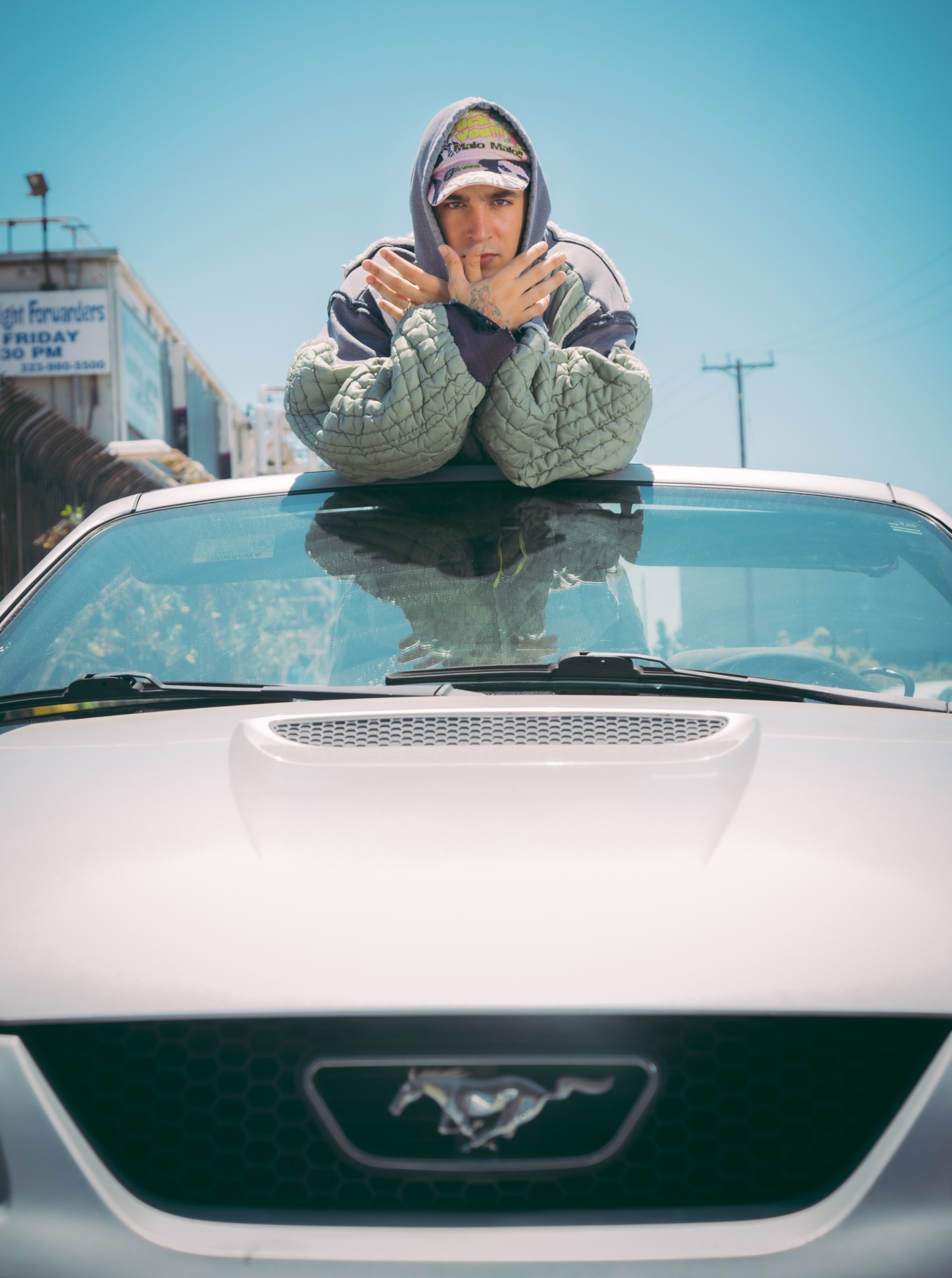
The FADER’s longstanding GEN F series profiles the emerging artists you need to know right now.
Fifty-odd years ago, an aviation obsessive named Richard Bach wrote a book about seagulls. It’s the story of a bird who achieves transcendence by pushing past the biological limits of flight. The fable is half inspirational, half aspirational: we can’t all be virtuosos, but we can all take that leap of faith. Jonathan Livingston Seagull is the eponymous gull’s name — in the Spanish translation, Juan Salvador Gaviota
Ralphie Choo must see some of himself in Juan Salvador. He borrowed its name for the first song on his spellbinding debut album, SUPERNOVA, but their kinship runs deeper than that. A 24-year-old former chemical engineering student from Madrid, Ralphie’s music always takes risks but never feels effortful. SUPERNOVA is a gleeful collision of genres — trap and classical, flamenco and Auto-Tuned balladry — all existing in remarkable harmony.

Choo had only been writing and recording for two years when the demos for SUPERNOVA began to take shape. “The first songs were in English — I mean, Spanglish,” he says over the phone from Los Angeles. “My manager was always saying, ‘Bro, you are not a Frank Ocean copy or Tyler copy, you are Ralphie. Just sing in Spanish, in your own language.’”
Ralphie’s breakthrough came last year with “BULERÍAS DE UN CABALLO MALO,” a track partially indebted to the flamenco–electronica fusion cultivated by Rosalía on El Mal Querer. The song caught on with critics and drew interest from labels like 4AD, True Panther, and eventually Warner Records, with whom he signed. “At that moment, I felt like I was a universal artist — a world artist,” Ralphie says.

He’s adamant, though, that SUPERNOVA is not a “flamenco album,” even if traces of the genre can be found everywhere. Take “JUAN SALVADOR GAVIOTA,” which breezes in on trilling flutes and chiming bells from, as Ralphie puts it, “that golden era of Hollywood when European producers came to the U.S.,” before gliding into a coastal samba groove.
A love of composers like Hitchcock standby Bernard Hermann and Lalo Schifrin of the Dirty Harry films — as well as Camarón de la Isla and Paco de Lucia, beloved Spanish TV entertainers of the ‘70s and ‘80s — came from Ralphie’s mother. She’s also the one who encouraged him to go to college for music.
“I was a little bit lost, I think, and my mom recommended a musical degree,” Ralphie says. He describes the program as a “hybrid between canonic music — I mean conservatory or classic music — and production. I said, ‘Let's go.’ I didn’t know what to do at that moment, so I just went in blind.”

But Choo’s production skills are first and foremost “autodidactic.” His best friend and co-producer DRUMMIE (Choo calls him a “human sample pack”) recorded many of SUPERNOVA’s instrumentals directly into his iPhone. That sometimes meant real instruments, but could just as often be kitchen utensils — a straw and bottle of water meant to sound like a flute — or samples of Choo’s own voice, he tells me before beatboxing a spot–on “oontz oontz.”



DRUMMIE and Choo assembled the final versions of these songs over Discord, and there is a patchwork quality to them, though never in a way that feels rushed or unintentional. See the sudden dip into breakbeats on “NHF,” or the 808s and Arabic scales of “WHIPCREAM,” a trap cut featuring Compton hip-hop duo Paris Texas.
“I think life is a juxtaposition of sensations — even the graphic of the heartbeat, it works with peaks, like a rollercoaster,” Choo says. As happens often, his music-student brain can’t help but interrupt his own thread of heavily gesticulated Spanglish: “Harmony works this way as well. Tension and relax, tension and relax. I like to play with that.”

While it reflects an uber-modern, digitally-mediated approach to music-making, SUPERNOVA is equally the sum of its very contemporary influences. Over the course of our conversation, Ralphie namechecks more outré sounds from the past decade (Dean Blunt, Arca, Aphex Twin) as well as icons for any kid who grew up during the 2010s: Frank Ocean, Kanye, Tyler, Childish Gambino.
Ocean, especially, is a lodestar for Ralphie Choo. The influence of Blonde can be felt all over these songs, in their forceful yet featherlight production, and in the way Ralphie modulates his voice through means both natural and artificial — pitching it up, layering it, and Auto-Tuning it, often all at once. “I’ve been constructing Ralphie’s voice, and now I’m comfortable with how I constructed it,” he says.

There’s more than a hint of Frank Ocean to “TOTAL90NOSTALGIA,” an Auto-Tuned lullaby that captures the pristine beauty of childhood and the tragedy of growing up. Speaker-shaking bass and vocoders kick things into high gear about two minutes in, before the digital filigree yields to Pablo Paulo’s tenderly strummed acoustic guitar interlude, and Ralphie returns to his natural, unvarnished register.
SUPERNOVA is full of moments like these: you think you’ve hit a song’s pinnacle, and then bam — you’re up even higher, where the air is thin enough to literally take your breath away. If it seems precarious, well, that’s the whole point, Ralphie says, offering his own take on Juan Salvador Gaviota: “You are your own god, you can decide what you want to do. Think of aging. Bro, if you’ve been here, you can be even higher at another point.”
SUPERNOVA is out now via Warner Records.